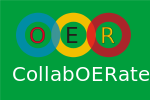PROJECT NOW HOSTED ON THE OER UNIVERSITY PORTAL PAGE
Phase 1: Brainstorming
- Avoid creating models which resell services ("middle man" services), eg a service for finding OCWs and then connecting with providers -- we should connect informal OER learners with real courses that will earn credit from real institutions. The relationship is between the learner (purchaser of the service) and the credentialising organisation --Wayne Mackintosh 03:51, 3 December 2010 (UTC)
- The informal OER learning materials must map to the graduate profiles / course offerings of the participating institutions. --Wayne Mackintosh 03:53, 3 December 2010 (UTC)
- Quality assurance of the OER courses are the shared responsibility of the formal teaching institutions. The value proposition is that multiple organisations collaborating on the development and maintenance of OER courses is more effective than individual organisations doing this alone (as in the case of institution-based OER projects). --Wayne Mackintosh 03:51, 3 December 2010 (UTC)
Page for developing and collaborating on the the project plan, commencing with the draft of a logical framework model.
Logical framework
| Component
|
Description
|
| Inputs
|
- Existing OER
- New or remixed OERs to replace closed content (OER curriculum gaps)
- Selected graduate profiles and institutional qualification frameworks
- Relevant extracts from national and/or international quality qualifications frameworks
- Knowledge, skills and experience of tertiary education stakeholders
- Formal education providers who will assess and accredit OER learning
- Resources (financial and time)
|
| Activities
|
- Identify and select credential(s) for the pilot
- Mapping of existing OER against selected graduate profiles / credentials
- Development and remix of "new" OER suitable for independent study
- Technology infrastructure for free and open delivery of courses
- Establish local institutional systems for assessment and credit at partner organisations
- Run international pilot for the first credentials
- Communication and dissemination of project activities and achievements
|
| Outputs
|
- Full OER course / credential offered by multiple institutions through community service outreach
- Informal OER learners attain formal recognised credential(s)
|
| Outcomes
|
- Scalable model for international delivery of selected OER credentials
- Scalable and affordable model for the provision of learner support, assessment and credentialising services
|
| Impact
|
- Sustainable and scalable OER ecosystem
- Radical widening of access to learning not being addressed through the current delivery systems
- Mainstream adoption of OER in formal education instutions
|
